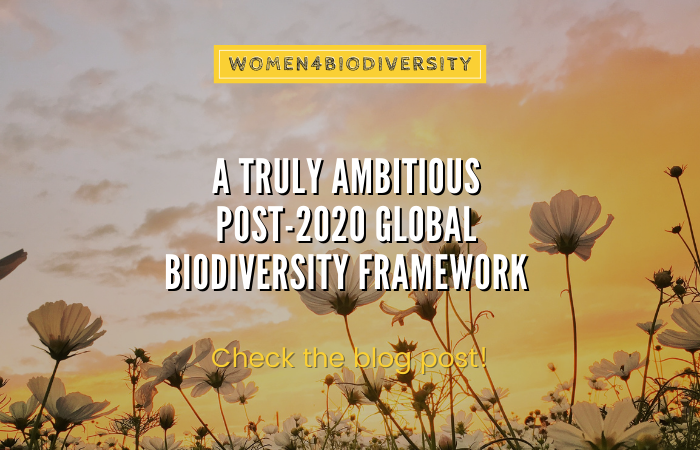Text and photo by Cristina Eghenter, WWF International
The OEWG4 negotiations held in Nairobi on 21-26 June were expected to provide the right motivation and leadership for coming closer to an agreement on the new Global Biodiversity Framework (GBF). This is urgently needed because the stakes are higher and the risks of failing nature and our lives even greater. We all need to act now to safeguard our one and common earth for present and future generations.
What is needed is an ambitious, transformative and inclusive GBF, but what does it mean? Is it a framework with bigger numbers of hectares and impressive percentages, and an exclusive focus on quantitative aspects as a measure of ambition? Or is it a framework that strives to combat the propensity to weak commitment, low achievement and reporting by securing strong and fair implementation mechanisms?

The ambition of the new GBF needs foremost to put rights and equity at the center and be based on a whole-of-society approach. These are core enabling conditions for defining and delivering ambition in ways that are inclusive, just and sustainable. Ambition is and should be about effectively and equitably tackling the root causes of biodiversity loss and recognizing the rights and contributions of the main custodians of biodiversity, IPLC, both women and men, and securing the right of the future generations to enjoying nature and life on this planet.
An ambitious GBF requires transforming models of production and consumption to adhere to both environmental standards and human rights, changing governance systems to ensure that biodiversity is fully and appropriately valued and the rights holders closer and most dependent on biodiversity are part of any planning and decision-making that could impact their lives.
Have the OEWG4 negotiations brought us closer to a truly ambitious GBF? Lack of leadership and ambition are slowing the negotiation process whereas civil society, IPLC, women, youth, rights holders are all voicing the urgency of a global commitment to transforming the development and governance model that has undermined and destroyed biodiversity at its foundation.
While the nature and climate crises are demanding solutions, and the many custodians and defenders of biodiversity are expecting concrete actions, [brackets] are momentarily the only winners.
This blog post originally appeared in the author’s LinkedIn

Cristina Eghenter is currently Global Governance Policy Coordinator at WWF International, with focus on human rights-based approach advocacy at the Convention on Biological Diversity (CBD) and other global fora where WWF engages. Her experience builds on over 20 years of work in Indonesia to support Indigenous Peoples’ networks and communities and women’ s associations, in their efforts to secure rights over their lands and resources and strengthen their governance institutions.


Congratulations Cristina for your accurate analysis of the GBF. Well done
I am a bit surprise that WWF is focussing on human rights-based approach, this is good for the institutional image, after WWF promoted the violations of human rights, for instance evicting indigenous people from their forest territories and establish there ‘reserve’ areas.